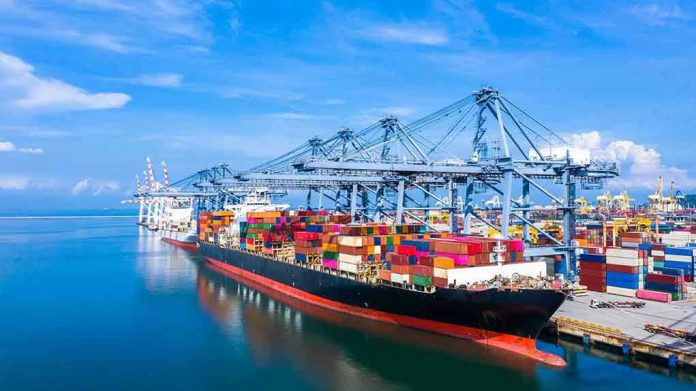
Panama’s pursuit to reclaim its canal-adjacent ports from a Chinese-linked operator is stirring international debate over sovereignty, foreign influence, and strategic control at one of the world’s most critical shipping crossroads.
Story Snapshot
- Panama is backing lawsuits that could end Chinese-linked Hutchison Port Holdings’ control of two vital ports by the Panama Canal
- Lawsuits challenge the long-standing concessions granted to Hutchison, fueling debates over national sovereignty and foreign investment
- The dispute carries global repercussions, affecting U.S. interests and raising concerns over China’s footprint in the Americas
- Outcome could set a precedent for how nations handle foreign control over critical infrastructure
Panama’s Legal Challenge Targets Foreign Control of Canal Ports
Lawsuits filed in 2024 and 2025 in Panamanian courts seek to revoke or renegotiate the long-term port concessions held by Hutchison Port Holdings, a Hong Kong-based subsidiary of CK Hutchison Holdings. These two ports—Balboa on the Pacific and Cristóbal on the Atlantic—sit at each end of the Panama Canal, a waterway vital to the global economy and to U.S. strategic interests. The Panamanian government, under mounting public pressure, questions the wisdom and fairness of agreements that have allowed a Chinese-linked company to operate critical infrastructure since 1997, the year of Hong Kong’s transfer to China and the original awarding of the concessions. The legal proceedings, still ongoing, have already triggered a heated debate about the risks and rewards of foreign investment in crucial national assets.
Panamanian President José Raúl Mulino on Thursday signaled that the Central #American nation may take control of two ports at either end of the #PanamaCanal, … https://t.co/6dSLtDBcMB
— The Epoch Times – China Insider (@EpochTimesChina) August 1, 2025
Hutchison Port Holdings, defending its contractual rights, argues that its investments have modernized Panama’s logistics network and fostered economic growth. Nevertheless, the proximity of these ports to the canal—a chokepoint for global trade—means the stakes extend far beyond Panama’s borders. The U.S., which relinquished canal control to Panama in 1999 after nearly a century, has repeatedly signaled concerns over Chinese influence in the region. As lawsuits work their way through local courts, international shipping companies, investors, and governments are watching closely, aware that a shift in port management could have far-reaching commercial and geopolitical consequences.
Historical Roots and Strategic Stakes
The Panama Canal, completed in 1914 and operated by the U.S. until 1999, has always been a flashpoint for power and sovereignty. The Torrijos–Carter Treaties of 1977 began the transfer of control to Panama, culminating in full sovereignty at the close of the 20th century. The adjacent ports, granted to Hutchison Port Holdings in 1997, became even more valuable following the 2016 completion of the canal’s expansion, which allowed larger ships and increased the volume of global trade passing through Panama. The 2022 renewal of Hutchison’s concession for another 25 years reignited domestic concerns about the wisdom of allowing foreign—specifically Chinese—control over such vital assets. For many Panamanians, and for American policymakers concerned about China’s growing influence in the Western Hemisphere, the lawsuits represent both a challenge to established contracts and a stand for national autonomy and security.
While Panama’s government frames the legal battle as a step toward reclaiming sovereignty and ensuring national benefit, the case is complex. Hutchison’s contractual rights are robust, and abrupt or unilateral termination could expose Panama to costly arbitration and damage its reputation as a stable destination for foreign investment. The port authority, local labor unions, and civil society groups are all weighing in, divided between the promise of greater national control and the risks of economic disruption.
Risks, Ramifications, and the U.S. Perspective
If Panama succeeds in its lawsuits, it would set a rare precedent for a nation to reclaim strategic infrastructure from a global operator, especially one tied to a geopolitical rival like China. Short-term effects could include legal uncertainty, disruption in port operations, and a chilling effect on new investment. In the long term, Panama could benefit from increased control and revenue, but only if it manages the transition without impairing the efficiency that global trade demands. The U.S. has a deep interest in the outcome, given its longstanding role in the canal’s history and its desire to counter China’s influence in the Americas.
Expert analysis underscores the delicate balance between national sovereignty and the practical need for foreign investment and operational expertise. Scholars and legal authorities caution that international concession agreements are notoriously difficult to unwind and that any move perceived as violating established contracts could reverberate across the global infrastructure investment community. Business leaders warn of reputational damage to Panama if it fails to honor its deals, while nationalists see the lawsuits as a long-overdue step toward true independence at a strategically irreplaceable crossroads.
Sources:
Council on Foreign Relations: Who Controls the Panama Canal?
SFN Today: A History of the Panama Canal and its Operation







